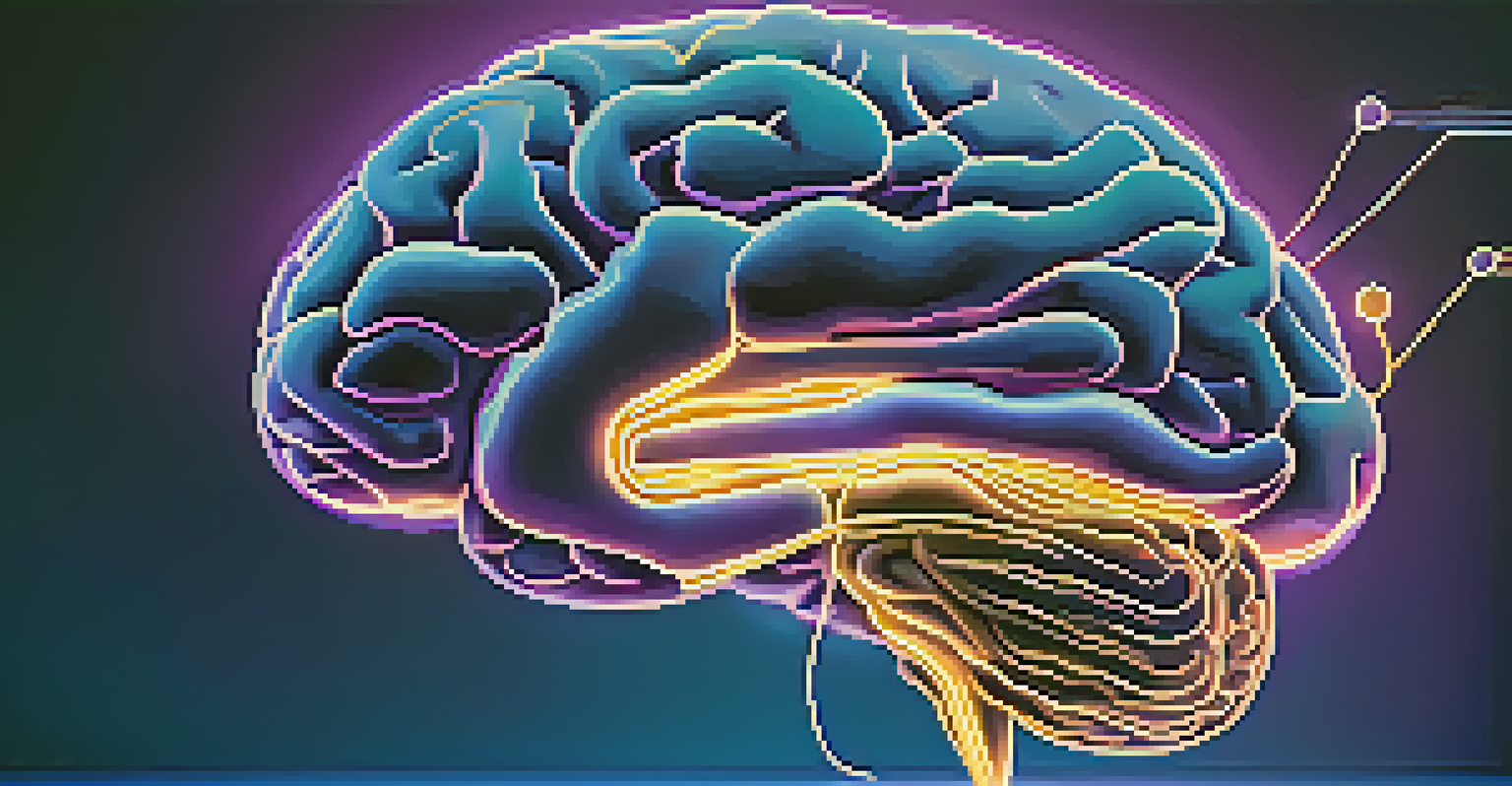Psychedelics and the Brain: Mechanisms of Addiction Recovery

What Are Psychedelics and How Do They Work?
Psychedelics are substances that alter perception, mood, and cognitive processes. Common examples include psilocybin, found in magic mushrooms, and LSD. They work primarily by interacting with serotonin receptors in the brain, particularly the 5-HT2A receptor, which plays a key role in mood regulation and perception.
Psychedelics can help people confront and process the underlying emotional traumas that often contribute to addiction.
When consumed, these substances can lead to profound changes in consciousness, often described as mystical or transcendental experiences. This shift in perception can help individuals gain new insights into their thoughts and behaviors, which is particularly beneficial for those struggling with addiction. It’s like hitting a reset button on the mind, allowing for fresh perspectives.
Research has shown that psychedelics can promote neuroplasticity—the brain's ability to reorganize itself by forming new neural connections. This characteristic is essential in recovery, as it enables individuals to unlearn addictive behaviors and form healthier habits.
The Science Behind Addiction and the Brain
Addiction fundamentally alters the brain's structure and function, particularly in areas related to reward and decision-making. Substances like alcohol, opioids, or stimulants hijack the brain's reward system, flooding it with dopamine and creating a cycle of dependency. Over time, this leads to changes that make it difficult to feel pleasure from everyday activities.

The brain’s reward circuitry becomes desensitized, requiring more of the addictive substance to achieve the same effect. This is why addiction can feel like an inescapable trap, with individuals caught in a relentless cycle of cravings and use. Imagine being on a hamster wheel, running fast but never getting anywhere.
Psychedelics Alter Consciousness
Psychedelics like psilocybin and LSD interact with serotonin receptors, leading to profound shifts in perception and mood.
Understanding these brain changes is crucial for developing effective treatment strategies. By addressing the underlying neural mechanisms, therapies can be designed to not only alleviate withdrawal symptoms but also foster long-term recovery and resilience against relapse.
How Psychedelics May Facilitate Recovery
Psychedelics can help individuals confront and process the underlying emotional traumas that often contribute to addiction. These substances may induce a state of heightened introspection, allowing users to explore their feelings and experiences in a safe environment. This therapeutic aspect can lead to breakthroughs that traditional treatments might not achieve.
The potential of psychedelics to address the root causes of addiction offers a refreshing perspective that could transform lives.
In studies, participants who engaged in guided psychedelic sessions reported significant reductions in anxiety and depression, which are often co-occurring with addiction. By addressing these mental health issues, psychedelics can create a more stable foundation for recovery. Think of it as clearing the clutter in a room, making space for healing and growth.
Moreover, the sense of interconnectedness and unity often experienced during psychedelic sessions can foster a greater sense of purpose and belonging. This feeling can be particularly powerful for individuals who may feel isolated or disconnected due to their addiction.
Promising Research: Psychedelics in Clinical Trials
Recent years have seen a resurgence of interest in the therapeutic potential of psychedelics, with numerous clinical trials underway. For instance, studies at institutions like Johns Hopkins and NYU have explored the effects of psilocybin on alcohol and nicotine dependence. Early results indicate that participants often experience reduced cravings and improved mental health following treatment.
These clinical trials typically involve structured sessions with trained therapists, ensuring that the experience is supportive and safe. Participants often report lasting changes in attitudes towards their addiction, suggesting a profound shift in their relationship with substances. It’s like turning a page in a book and discovering a whole new story awaiting.
Addiction Alters Brain Function
Addiction hijacks the brain's reward system, creating dependency and making it difficult to feel pleasure from everyday activities.
The combination of psychedelics with psychological support seems to amplify the benefits, highlighting the importance of a holistic approach to recovery. As more research emerges, we may see a paradigm shift in how we understand and treat addiction.
Challenges and Considerations in Psychedelic Therapy
While the potential of psychedelics in addiction recovery is promising, there are significant challenges to consider. These substances can provoke intense emotional and psychological reactions, which may not be suitable for everyone. For instance, individuals with a history of certain mental health disorders may experience adverse effects, making careful screening essential.
Additionally, the legal status of psychedelics varies widely, complicating access to these treatments. In some regions, they remain classified as illegal substances, limiting research opportunities and patient access. This creates a barrier for those who could potentially benefit from psychedelic therapy.
Moreover, the therapeutic context in which psychedelics are used is crucial. Without proper guidance and support, the risk of misuse or negative experiences increases. Establishing professional frameworks for safe and effective use is vital to ensure that these powerful substances are harnessed responsibly.
Personal Stories: Transformative Experiences with Psychedelics
Many individuals have shared their personal stories of transformation through the use of psychedelics in recovery. For example, one woman recounted her experience with psilocybin therapy, describing it as a pivotal moment in her battle against alcohol addiction. During her session, she confronted deep-seated fears and emotions, ultimately leading to a newfound sense of clarity and purpose.
These narratives often highlight the profound insights gained during psychedelic experiences. People frequently report feelings of interconnectedness, self-acceptance, and an enhanced appreciation for life. Such moments can serve as catalysts for lasting change, encouraging individuals to pursue healthier lifestyles.
Therapeutic Potential of Psychedelics
Emerging research suggests psychedelics may help individuals confront emotional traumas and foster recovery from addiction.
Hearing these stories can be incredibly inspiring, reminding us of the potential for healing and growth that lies within all of us. They illustrate that recovery is not just about abstaining from substances, but also about rediscovering joy and meaning in life.
The Future of Psychedelics in Addiction Recovery
As research continues to unfold, the future of psychedelics in addiction recovery looks increasingly promising. With growing public interest and changing attitudes toward these substances, we may soon see more widespread acceptance of psychedelic therapies. This shift could pave the way for innovative treatment options that integrate psychedelics with traditional therapeutic practices.
Advocates argue that it’s time to rethink our approach to addiction treatment, moving away from strictly punitive measures towards more compassionate, healing-centered methods. The potential of psychedelics to address the root causes of addiction offers a refreshing perspective that could transform lives.

Ultimately, the journey of understanding and integrating psychedelics into mainstream treatment is just beginning. As we continue to explore these powerful substances, we may unlock new pathways to recovery and healing that were once thought impossible.